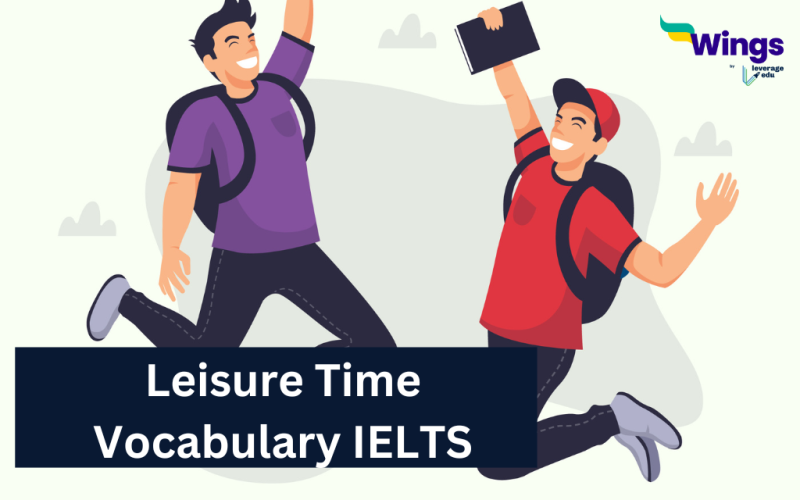Leisure time is an essential aspect of our lives, and it refers to the time that we spend outside of work or other commitments. For many people leisure time is a chance to unwind, relax and engage in activities that they enjoy. In the International English Language Testing System (IELTS), leisure time vocabulary is an important aspect of the test, and test takers must be familiar with this vocabulary. In this blog post, we will discuss some key leisure time vocabulary that can be helpful in the IELTS exam.
This Blog Includes:
Leisure Time Vocabulary IELTS
These are some of the words in leisure time vocabulary for IELTS:
| Words | Meaning |
| Recreation | Activities are done for enjoyment, relaxation or pleasure. |
| Entertainment | Any activity that is designed to provide amusement, enjoyment, or pleasure to people who participate in it. |
| Hobbies | Activities are done in one’s leisure time that one enjoys doing, often done for pleasure or relaxation. |
| Sports | Physical activities involve competition or skill and are played for entertainment and enjoyment. |
| Art | Creative activities such as painting, drawing, sculpture, or music are done for pleasure or self-expression. |
| Travel | The act of going from one place to another, often for pleasure or vacation. |
| Socializing | Interacting with others in a social setting, often for enjoyment and leisure. |
| Relaxation | Activities or practices are done to reduce stress, promote calmness, and enhance well-being. |
| Volunteer work | Activities that one does without getting paid, often for the benefit of others or the community. |
| Music | Artistic expression through sound is often enjoyed for relaxation or entertainment. |
Must Read: Tips to Improve Your Vocabulary For Best PTE Score
Tips to Improve Leisure Time Vocabulary IELTS
Improving your leisure time vocabulary for IELTS exam can be done by following a few simple steps:
Read and Listen
Read books, and articles, and listen to podcasts that talk about leisure time activities, hobbies, and entertainment. This can help you to learn new words and phrases in context.
Write and Speak
Practice using new vocabulary words in your writing and speaking practice. Try to use synonyms and related words to expand your vocabulary and improve your fluency.
Use Flashcards
Make flashcards with new vocabulary words and practice using them regularly. This can help you to memorize new words and use them confidently in the exam.
Take Practice Tests
Take practice tests to get familiar with the types of questions of the IELTS exam. This can also help you to identify areas where you need to improve your vocabulary and language skills.
FAQs
Leisure time vocabulary is important for the IELTS exam. It is a common topic that usually is part of the speaking and writing sections. Knowing how to talk about leisure time activities, hobbies, and entertainment can help you to demonstrate your language skills and express yourself more effectively.
You can improve your vocabulary for the IELTS exam by reading and listening to English language materials, practising writing and speaking, using flashcards, and taking practice tests.
In the IELTS exam, questions will be related to these common leisure time activities mentioned here like hobbies, entertainment, sports, travel, relaxation, socializing, and volunteer work.
In conclusion, having a good understanding of leisure time vocabulary can be essential to perform well in the IELTS exam.
If you are aiming to appear for IELTS 2023, Then follow Leverage Edu‘s Leverage Live classes and our top trainers and strengthen your English score as well as your application so that you can secure your spot in your dream college. Fulfil your dreams of studying abroad with Leverage Edu, to get a free counselling session, reach us at 1800527130. Don’t forget to follow us on Facebook, Instagram, LinkedIn, and Twitter


 One app for all your study abroad needs
One app for all your study abroad needs












 60,000+ students trusted us with their dreams. Take the first step today!
60,000+ students trusted us with their dreams. Take the first step today!